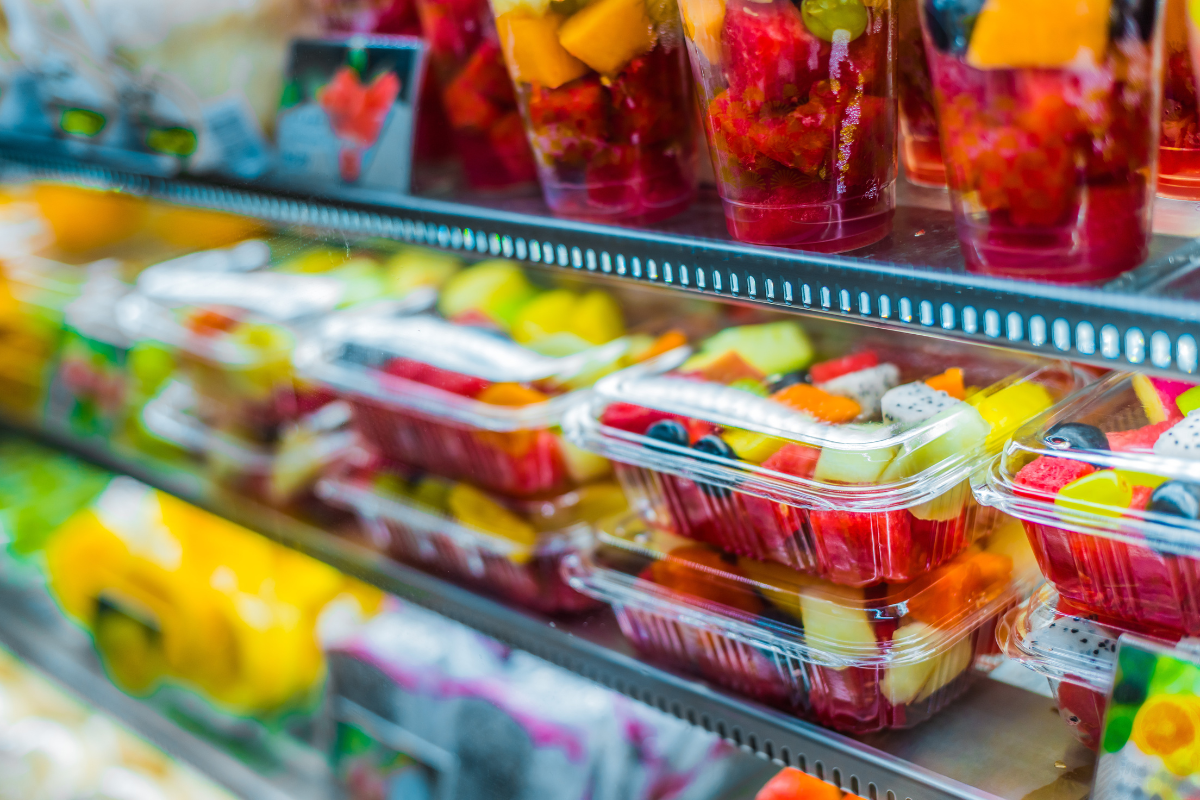The Trump administration has included Canada’s Zero Plastic Waste Agenda among foreign trade barriers, drawing criticism from a Canadian advocacy group and caution from the country’s chemical industry.
“U.S. industry is concerned that without viable alternatives for plastic packaging, Canada’s proposed reductions in food packaging and packaging compostability requirements could compromise food safety, increase food loss and waste, and restrict U.S. agricultural exports,” according to an April 1 report from the U.S. Trade Representative.
The report specifically calls out extended producer responsibility programs, minimum recycled content requirements, compostability and recyclability labeling and restrictions on single-use plastics as among the concerning elements of Canada’s efforts to prevent plastic pollution.
Upon review of the report, the Chemistry Industry Association of Canada noted that the country was covered “in a relatively positive light,” and identified “a minimal number of trade irritants and barriers to trade between Canada and the U.S.,” Christa Seaman, vice president of plastics at CIAC, told Plastics Recycling Update in an email.
However, CIAC urges the Canadian government “to remove regulatory hurdles that restrict cross-border trade in recycled plastics,” Seaman added. “Canada’s plastics value chain depends on reliable access to North American recycled content to meet sustainability targets.”
In 2024, 34% of U.S. scrap plastic exports went to Canada and 36% of scrap imports originated in Canada, according to data from the International Trade Commission. On a more granular level, 69% of U.S. PE scrap imports originated in Canada, while 16% of PE scrap exports went there. Of PET scrap imports, 24% originated in Canada, while the data showed no PET scrap exports to the country.
The chemicals association emphasized the importance of aligning new regulations with major trading partners to avoid creating unnecessary barriers and delaying progress on circularity: “CIAC fully supports the federal government’s goal to eliminate plastic waste and build a circular economy for plastics. However, it’s essential that Canada’s policies enable, rather than impede, international trade – especially with key partners like the United States.”
Karen Wirsig, senior program manager for plastics at the Environmental Defence advocacy organization, wrote in an April 2 statement that it’s “appalling that the latest report from the U.S. government on trade barriers points the finger at the Canadian government’s action on plastic pollution.”
“The entry on plastics reads like talking points from the plastics and petrochemical industry that has long opposed action on plastic pollution in the U.S. and elsewhere, including Canada,” Wirsig said.
A March article on the Retail Council of Canada site noted the significant push to support Canadian-made products, a sentiment Wirsig echoed. She added that “protecting and enhancing the single-use plastics bans while supporting convenient and affordable reuse and refill systems can help reduce reliance on U.S.-sourced single-use packaging and shield Canadian food growers and producers from price volatility, all while eliminating waste and pollution.”
Seaman from CIAC noted: “To truly achieve zero plastic waste, we must shift the narrative: plastics should be seen not as waste, but as a valuable resource. Success will require policies that support reuse, recycling, and a harmonized, trade-friendly approach across North America.”
Prior issues with Canada’s ‘toxic’ label for plastics
CIAC also has raised concerns with the Canadian government about the effect on trade and environment of parts of the Zero Waste Agenda, Seaman said. The organization told Plastics Recycling Update that labeling plastic items as toxic under the Canadian Environmental Protection Act and banning single-use plastics “may be perceived as trade-restrictive,” raising concerns under the World Trade Organization Technical Barriers to Trade Agreement and the U.S.-Mexico-Canada Agreement.
In 2021, the Canadian government labeled all plastic items as toxic under CEPA, to enable national bans on single-use plastics. Chemical producers Dow, Imperial Oil and Nova filed suit, and the Alberta and Saskatchewan provincial governments later intervened in support of the chemical industry.
In November 2023, a federal judge ruled the listing was too broad, that the government had not shown that all plastics cause harm and that this area was of provincial jurisdiction rather than federal. In a June 2024 appeal, government attorneys argued the lower court was mistaken. The case is ongoing.






























